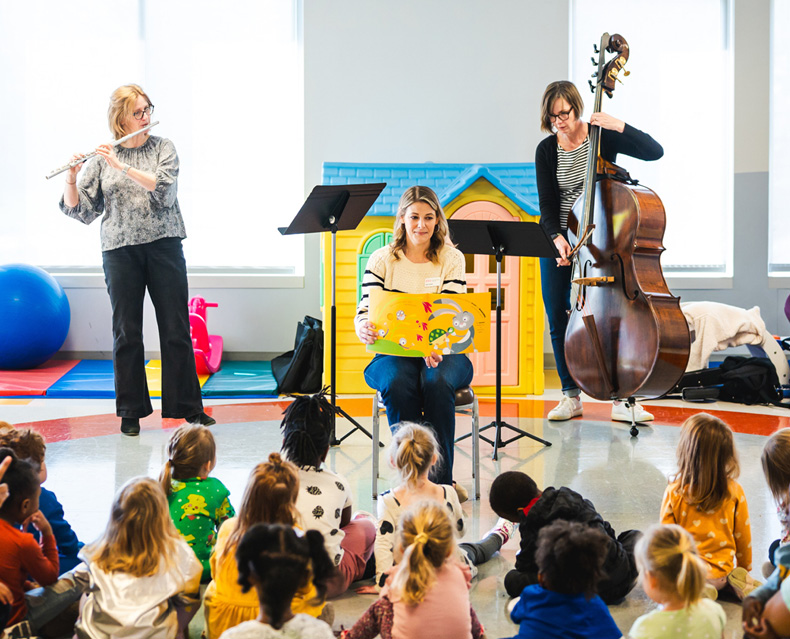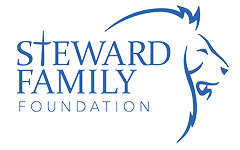
Symphony In Your School, Junior
Bring the SLSO into your classroom! Symphony In Your School, Jr. inspires and empowers early childhood educators with tools to incorporate meaningful musical activities into their classroom curriculum. When you become a Symphony In Your School, Jr. partner teacher, you’ll receive easy-to-implement lesson plans, instruments and other materials, a classroom musician visit, and tickets and transportation to bring your class to Tiny Tunes.
Teachers who attend a Giraffes Can’t Dance workshop in Oct 2025 will be invited to apply for Symphony In Your School, Jr. during the 2025/26 school year.
Become a Symphony In Your School, Jr. Partner Teacher
- Attend a Giraffes Can’t Dance workshop in Oct 2025.*
- After the workshop, you will receive an email invitation to apply to be a Symphony In Your School, Jr. partner teacher. Complete the application by Fri, Nov 21.
- Partners will be chosen and applicants will be notified by Fri, Dec 5.
- Partner teachers will be notified about which Tiny Tunes concert they will attend by Fri, Dec 19.
- Partner teachers are strongly encouraged to attend the Make Music Not Noise workshop on Feb 4.
- Classroom instruments and other materials will be delivered in February. Implement the provided lessons in your classroom to engage your students with music and prepare them for their classroom musician visit and Tiny Tunes field trip.
- Your classroom musician visit will occur between March and May.
- Attend Tiny Tunes, May 12-15, 2026.
- Receive long-term support from the SLSO as you continue to use music to reach their curricular goals.
*For the 2026/27 school year, prerequisites for application to Symphony In Your School, Jr. will be attendance at both the Fall 2026 thematic early childhood workshop and previous attendance at a Make Music Not Noise workshop.
Curriculum
The Symphony In Your School, Jr. curriculum aligns with the Missouri Early Learning Standards, emphasizing literacy, physical development, and social-emotional learning.
- Literacy – The program supports early literacy skills by integrating music with children’s literature, engaging children in creating and performing simple songs, introducing new vocabulary, and using musical games to foster phonological awareness.
- Physical development – Through dancing, body percussion, and playing instruments, students develop both gross and fine motor skills. Physically responding to music improves children’s body and spatial awareness in fun and engaging ways.
- Social-emotional learning – The program fosters curiosity, confidence, and creativity as children work with their peers, teachers, and the musicians of the SLSO. Musical activities encourage children to make choices and express their preferences, emotions, and ideas while also learning to respect and accept the ideas and feelings of others.
Additionally, the program promotes early math skills by encouraging students to recognize and create patterns in music. As they learn to play classroom instruments, students also encounter the science of sound. This hands-on approach – focused on creating, performing, responding to, and connecting with music – introduces students to the foundational music skills that they will encounter in elementary music class.
SLSO education programs are presented by:


SLSO early childhood programs are presented by:
